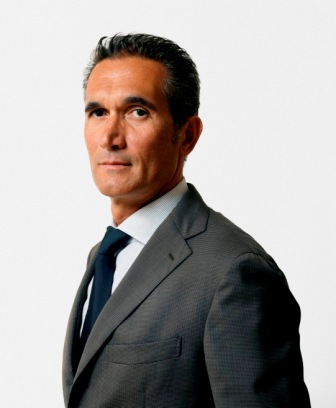Studying at the University of Verona
Here you can find information on the organisational aspects of the Programme, lecture timetables, learning activities and useful contact details for your time at the University, from enrolment to graduation.
Academic calendar
The academic calendar shows the deadlines and scheduled events that are relevant to students, teaching and technical-administrative staff of the University. Public holidays and University closures are also indicated. The academic year normally begins on 1 October each year and ends on 30 September of the following year.
Course calendar
The Academic Calendar sets out the degree programme lecture and exam timetables, as well as the relevant university closure dates..
| Period | From | To |
|---|---|---|
| First semester bachelor degree | Sep 16, 2019 | Jan 10, 2020 |
| Second semester bachelor degree | Feb 17, 2020 | Jun 5, 2020 |
| Session | From | To |
|---|---|---|
| First semester intermediate tests | Nov 4, 2019 | Nov 8, 2019 |
| Winter exam session | Jan 13, 2020 | Feb 14, 2020 |
| Second semester intermediate tests | Apr 15, 2020 | Apr 17, 2020 |
| Summer session exam | Jun 8, 2020 | Jul 10, 2020 |
| Autumn Session exams | Aug 24, 2020 | Sep 11, 2020 |
| Session | From | To |
|---|---|---|
| Autumn Session | Dec 2, 2019 | Dec 4, 2019 |
| Winter Session | Apr 7, 2020 | Apr 9, 2020 |
| Summer session | Sep 7, 2020 | Sep 9, 2020 |
Exam calendar
Exam dates and rounds are managed by the relevant Economics Teaching and Student Services Unit.
To view all the exam sessions available, please use the Exam dashboard on ESSE3.
If you forgot your login details or have problems logging in, please contact the relevant IT HelpDesk, or check the login details recovery web page.
Academic staff
 silvano.corbella@univr.it
silvano.corbella@univr.it

Manzoni Elena
 elena.manzoni@univr.it
elena.manzoni@univr.it
 8783
8783
 martina.menon@univr.it
martina.menon@univr.it
 maurizio.pizzamiglio@univr.it
maurizio.pizzamiglio@univr.it

Santi Flavio
 flavio.santi@univr.it
flavio.santi@univr.it
 045 802 8239
045 802 8239
 fabio.sartori@univr.it
fabio.sartori@univr.it
Study Plan
The Study Plan includes all modules, teaching and learning activities that each student will need to undertake during their time at the University.
Please select your Study Plan based on your enrollment year.
1° Year
| Modules | Credits | TAF | SSD |
|---|
2° Year activated in the A.Y. 2020/2021
| Modules | Credits | TAF | SSD |
|---|
3° Year activated in the A.Y. 2021/2022
| Modules | Credits | TAF | SSD |
|---|
| Modules | Credits | TAF | SSD |
|---|
| Modules | Credits | TAF | SSD |
|---|
| Modules | Credits | TAF | SSD |
|---|
| Modules | Credits | TAF | SSD |
|---|
Legend | Type of training activity (TTA)
TAF (Type of Educational Activity) All courses and activities are classified into different types of educational activities, indicated by a letter.
Macroeconomics (2019/2020)
Teaching code
4S00242
Teacher
Coordinator
Credits
9
Language
Italian
Scientific Disciplinary Sector (SSD)
SECS-P/01 - ECONOMICS
Period
Second semester bachelor degree dal Feb 17, 2020 al Jun 5, 2020.
Learning outcomes
The course aims to introduce students to the fundamental topics of macroeconomics. This discipline deals with the aggregate functioning of economic systems determined by the collective behaviour of consumers and firms, by the state intervention on the economy and by the international relations with the rest of the world. The course provides students also with a knowledgeable understanding of the scientific language and methodology adopted by macroeconomics. Its theory is made up of mathematical tools and models that formalize mechanisms behind the markets of goods, money and labour, since their interaction determines the level of national income, employment, and prices. At the end of the course students will be able to make use of such analytical tools to understand and interpret the factors steering the evolution of economic systems at aggregate national level and to evaluate the macroeconomic effects of Central Bank and fiscal policy interventions.
Program
Lectures are delivered covering both macroeconomic theory and macroeconomic practice, with historical and empirical cases, and through individual and team work tutorials. Students will be asked to take weekly exercises and tests, so to assess their progress in preparation of the final exam. A tutorship (60h) is available to assist the weekly homework and team work assessments. The course has its additional elearning material published in the university Moodle website.
The main topics that will be addressed are the following:
1. Macroeconomics: History of Economic Thought and Economic History
2. National Accounts and further Empirical Evidence
3. The market of goods
4. The financial and monetary market
5. The IS-LM model
6. Macroeconomics and Economic Policy
7. Economic growth (including Harrod-Domar model)
8. The accumulation of capital and the technical progress
9. The labour market
10. Unemployment and inflation: the Phillips curve
11. The AD-AS equilibrium model
12. The open economy
Textbook:
**********************
Author(s): Blanchard Olivier, Amighini Alessia, Giavazzi Francesco
Title: Macroeconomia - Una prospettiva europea
Year: 2016
Publisher: Il Mulino
***********************
Solution Manual
***********************
Author(s): David W. Findlay
Title: Esercizi di macroeconomia. Guida allo studio del testo di Olivier Blanchard, Alessia Amighini, Francesco Giavazzi
Year: 2017 (connected with the textbook Blanchard et al. 2016)
Publisher: Il Mulino
**********************
Textbook: Chapters that are needed to be done
*********************************************
Textbook basic References (see in the star box the detailed
bibliography):
Blanchard et al. (2016): Chap. 1-6, 7-9, 10-12, 17-18, 22-24.
Previous editions are also ok. In this case the combination between Solution Manual & Textbook is the following:
Findlay (2015) with Blanchard et al. (2014).
Findlay (2011) with Blanchard et al. (2011).
Findlay (2009) with Blanchard (2009).
| Author | Title | Publishing house | Year | ISBN | Notes |
|---|---|---|---|---|---|
| Findlay, David W | Esercizi di Macroeconomia. Guida allo studio del testo di Olivier Blanchard, Alessia Amighini, Francesco Giavazzi | Il Mulino | 2017 | 9788815272003 | |
| OLIVIER BLANCHARD, ALESSIA AMIGHINI, FRANCESCO GIAVAZZI | Macroeconomia. Una prospettiva europea | Il Mulino | 2016 | 978-88-15-26571-5 |
Examination Methods
Lectures are delivered covering both macroeconomic theory and macroeconomic practice, with historical and empirical cases, and through individual and team work tutorials. Students will be asked to take weekly exercises and tests, so to assess their progress in preparation of the final exam. A tutorship (60h) is available to assist the weekly homework and team work assessments. The course has its additional elearning material published in the university Moodle website. The main topics that will be addressed are the following: 1. Macroeconomics: History of Economic Thought and Economic History 2. National Accounts and further Empirical Evidence 3. The market of goods 4. The financial and monetary market 5. The IS-LM model 6. Macroeconomics and Economic Policy 7. Economic growth (including Harrod-Domar model) 8. The accumulation of capital and the technical progress 9. The labour market 10. Unemployment and inflation: the Phillips curve 11. The AD-AS equilibrium model 12. The open economy Textbook: ********************** Author(s): Blanchard Olivier, Amighini Alessia, Giavazzi Francesco Title: Macroeconomia - Una prospettiva europea Year: 2016 Publisher: Il Mulino *********************** Solution Manual *********************** Author(s): David W. Findlay Title: Esercizi di macroeconomia. Guida allo studio del testo di Olivier Blanchard, Alessia Amighini, Francesco Giavazzi Year: 2017 (connected with the textbook Blanchard et al. 2016) Publisher: Il Mulino ********************** Textbook: Chapters that are needed to be done °°°°°°°°°°°°°°°°°°°°°°°°°°°°°°°°°°°°°°°°°°°° Textbook basic References (see in the star box the detailed bibliography): Blanchard et al. (2016): Chap. 1-6, 7-9, 10-12, 17-18, 22-24. Previous editions are also ok. In this case the combination between Solution Manual & Textbook is the following: Findlay (2015) with Blanchard et al. (2014). Findlay (2011) with Blanchard et al. (2011). Findlay (2009) with Blanchard (2009).
Type D and Type F activities
Nei piani didattici di ciascun Corso di studio è previsto l’obbligo di conseguire un certo numero di crediti formativi mediante attività a scelta (chiamate anche "di tipologia D e F").
Oltre che in insegnamenti previsti nei piani didattici di altri corsi di studio e in certificazioni linguistiche o informatiche secondo quanto specificato nei regolamenti di ciascun corso, tali attività possono consistere anche in iniziative extracurriculari di contenuto vario, quali ad esempio la partecipazione a un seminario o a un ciclo di seminari, la frequenza di laboratori didattici, lo svolgimento di project work, stage aggiuntivo, eccetera.
Come per ogni altra attività a scelta, è necessario che anche queste non costituiscano un duplicato di conoscenze e competenze già acquisite dallo studente.
Quelle elencate in questa pagina sono le iniziative extracurriculari che sono state approvate dal Consiglio della Scuola di Economia e Management e quindi consentono a chi vi partecipa l'acquisizione dei CFU specificati, alle condizioni riportate nelle pagine di dettaglio di ciascuna iniziativa.
Si ricorda in proposito che:
- tutte queste iniziative richiedono, per l'acquisizione dei relativi CFU, il superamento di una prova di verifica delle competenze acquisite, secondo le indicazioni contenute nella sezione "Modalità d'esame" della singola attività;
- lo studente è tenuto a inserire nel proprio piano degli studi l'attività prescelta e a iscriversi all'appello appositamente creato per la verbalizzazione, la cui data viene stabilita dal docente di riferimento e pubblicata nella sezione "Modalità d'esame" della singola attività.
ATTENZIONE: Per essere ammessi a sostenere una qualsiasi attività didattica, inlcuse quelle a scelta, è necessario essere iscritti all'anno di corso in cui essa viene offerta. Si raccomanda, pertanto, ai laureandi delle sessioni di dicembre e aprile di NON svolgere attività extracurriculari del nuovo anno accademico, cui loro non risultano iscritti, essendo tali sessioni di laurea con validità riferita all'anno accademico precedente. Quindi, per attività svolte in un anno accademico cui non si è iscritti, non si potrà dar luogo a riconoscimento di CFU.
| years | Modules | TAF | Teacher |
|---|---|---|---|
| 1° 2° 3° | Enactus Verona 2020 | D |
Paola Signori
(Coordinator)
|
| 1° 2° 3° | Parlare in pubblico e economic writing | D |
Martina Menon
(Coordinator)
|
| 1° 2° 3° | Samsung Innovation Camp | D |
Marco Minozzo
(Coordinator)
|
| 1° 2° 3° | Simulation and Implementation of Economic Policies | D |
Federico Perali
(Coordinator)
|
Career prospects
Module/Programme news
News for students
There you will find information, resources and services useful during your time at the University (Student’s exam record, your study plan on ESSE3, Distance Learning courses, university email account, office forms, administrative procedures, etc.). You can log into MyUnivr with your GIA login details: only in this way will you be able to receive notification of all the notices from your teachers and your secretariat via email and soon also via the Univr app.
Graduation
List of theses and work experience proposals
| theses proposals | Research area |
|---|---|
| Tesi di laurea - Il credit scoring | Statistics - Foundational and philosophical topics |
| La performance delle imprese che adottano politiche di Corporate Social responsibility | Various topics |
| La previsione della qualita' dei vini: Il caso dell'Amarone | Various topics |
| Proposte di tesi | Various topics |
| Tesi in Macroeconomia | Various topics |
| tesi triennali | Various topics |






























